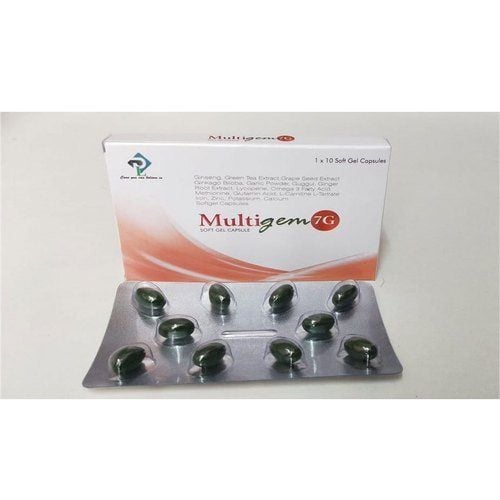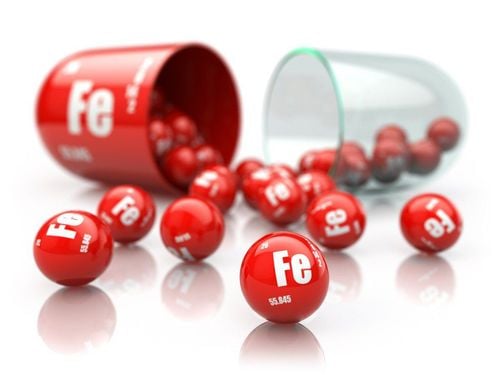This is an automatically translated article.
The first three years of a child's life are an important milestone in their physical and intellectual development. But this is also the most difficult period, because children are very susceptible to nutritional deficiencies due to inadequate diets, incomplete digestive and immune systems.1. Children with micronutrient deficiencies affect development
Today, amidst a wealth of information about parenting tips and tricks, you may be busy pursuing ways to grow taller and develop children's intelligence. But you can again lose the opportunity to develop the whole child because of lack of nutrients.Micronutrients are substances that the body only needs in a very small amount, but they play a very important role, a lack of these micronutrients will lead to serious effects for the body, especially for children. Micronutrients include:
Group of vitamins such as vitamins A, B, C, D, E.... Group of mineral elements such as calcium, phosphorus, iron, zinc, iodine... The micronutrients have play an important role in the health of children as well as adults, they participate in the physical development process such as muscles and bones; intellectual development such as brain, nervous system; sex characteristics.
The human body cannot synthesize these micronutrients on its own, but must absorb them from food and supplements.
In the first 3 years of each child's life, this is the "golden time" for children to develop quickly both physically and intellectually. However, this is also the period when micronutrient deficiencies are most likely to occur in children.
Unlike adults who are self-aware of "whatever you eat is good for your health", children, when getting used to food, often only choose dishes according to their preferences. According to nutritionists, this is the common cause of micronutrient deficiency in children.
In addition, the digestive system and absorption function of children at this age are not yet complete, so deficiencies in feeding such as feeding children less, eating quickly, and not eating enough meals will also prevent children from being provided with food. sufficient micronutrients.
In addition, starting from weaning (6 months onwards) is the intersection between passive immunity (by antibodies transmitted from breast milk) and active immunity (the baby's body produces antibodies on its own). As a result, children are very susceptible to infections..
According to a survey of the National Institute of Nutrition in the year 2014-2015, the rate of children with zinc deficiency is 69.4% (of which the mountainous region accounts for 80.8%, rural is 71.6%, urban is 49.7%); Iron deficiency anemia in children is 63.6%.

Thiếu chất dinh dưỡng là nguyên nhân chính khiến trẻ bị còi xương suy dinh dưỡng
2. Micronutrients are often lacking in children
Micronutrient deficiency in children leads to growth retardation and malnutrition, such as underweight and stunting. Below are the micronutrients children are often deficient in.2. 1. Iron deficiency Iron is one of the factors involved in the transport and storage of oxygen, and the metabolism of nutrients; make red blood cells, make enzymes.
Iron deficiency is the main cause of anemia. Children who are not provided with enough iron through their diets will be prone to underweight malnutrition and mental retardation. Children are also susceptible to infections of the respiratory tract, gastrointestinal tract, skin due to lack of micronutrients such as iron, zinc, vitamin A, vitamin B group ...
Expression of iron deficiency: The child's skin color is pale, paleness, most visible in the palms, soles, ear lobes, pharyngeal mucosa, eye conjunctiva; dry hair, soft, brittle fingernails and toenails. Children are often tired, slow, sleepy, less playful.
You should add iron-rich foods from plants and animals such as beef, liver, fish, chicken, eggs, wood ear, sesame, amaranth, green beans, gotu kola... rich in iron, in 100g there is 56mg of iron, 14.5mg of sesame, 12mg of pig liver and 9mg of beef liver, so it can be prioritized in the menu for children and the whole family.
Iron in foods is enhanced absorption if you eat with foods rich in vitamin C, such as beef with star fruit or mixed with vinegar.
2. 2. Calcium deficiency Calcium plays an important role in the structure of bones and teeth, and it is also involved in blood clotting and the metabolism of some nutrients. According to the recommended nutritional needs for Vietnamese people in 2016, children from 0 - 5 months need 300mg of calcium per day; need to provide 400mg calcium for children from 6 - 8 months, 9 - 11 months; Children from 1 to 2 years old need 500mg, children from 3 to 5 years old need 600mg of calcium per day.
Symptoms of calcium deficiency: Children with delayed teething, sweating a lot (especially when sleeping), hair loss in the shape of a scarf, children sleeping restlessly, easily angry, older children often complain of pain in their limbs.
If calcium deficiency causes children to often delay teething, this affects the ability to chew and swallow poorly, leading to poor digestion and absorption. Foods rich in calcium must be mentioned such as green vegetables, shrimp, shrimp, black beans, cheese... Black beans contain more calcium than green beans, so they can be prioritized.
In 100g of dried shrimp contains 2,000mg of calcium; In 100g of shrimp, there are 1,120mg of calcium. Shrimps have more calcium than shrimp, so if your child is older, you can give them regular shrimp. Cooked fish and eat the bones will provide more calcium for the body.
Milk and dairy products contain a lot of calcium, fresh milk has about 120mg calcium in 100ml, powdered milk has more calcium, skimmed milk has about 900-1,000mg calcium in 100ml. You should choose calcium-fortified milk to help meet the daily needs of children.
2. 3. Iodine deficiency Iodine is a mineral involved in the synthesis of thyroid hormones. This mineral also participates in the metabolism of nutrients, promotes the maturation of the central nervous system, is an important element of the hormonal system, so children with iodine deficiency are prone to stunting. , causing damage to nerve cells.
Manifestations of iodine deficiency: Children have signs of hair loss or hair loss, or suffer from constipation, jaundice, fear of cold; mental retardation, growth retardation, slurred speech, slurred speech...
If the child lacks iodine in the womb, the child will have congenital hypothyroidism at birth. . In the children's menu, you need to add iodine-rich foods such as seaweed, sea fish, or use salt and iodine-added spices to prepare dishes as a solution to prevent iodine deficiency.
2. 4. Zinc deficiency Zinc participates in the composition of more than 300 enzymes for chemical reactions in the body, it also participates in the metabolism of nutrients and the process of cell division, biological functions. production, immune function of the body.
Zinc deficiency makes children physically retarded, malnourished, and reduces resistance, so they are more susceptible to infections and reduced fertility.
Immunodeficiency, digestive and metabolic disorders are also manifestations of zinc deficiency. Children's daily meals can be supplemented with zinc through foods such as crab, shrimp, oysters, clams, chicken, beef, cereal grains, cheese...
2. 5. Vitamin deficiency Young vitamins Common deficiencies such as vitamin A, vitamin D, and group B vitamins. Dry corneal ulcers are the result of vitamin A deficiency. Meanwhile, lack of vitamin D makes children often rickets, deficiency of vitamin B group easily makes children tired, eat and sleep poorly...
Cod liver oil, especially in fatty fish; The liver and fat of marine mammals are rich in vitamin D. B vitamins such as folic acid are abundant in avocado, liver, eggs, peanuts; dark green leafy vegetables such as broccoli, spinach, asparagus...
Plant-based foods rich in provitamin A such as yellow and red vegetables such as tomatoes, carrot, watermelon, papaya, gac...; dark vegetables such as water spinach, amaranth, spinach, water spinach, other types of cabbage; palm oil and other cooking oils.
However, if these foods are bought for a long time, improperly stored, and cooked, fried at too high a temperature can lose up to 95% of micronutrients. Vitamins are also easily lost during processing if you chop vegetables, soak food in water for too long, cook with a lot of water, open the lid when cooking. Therefore, when preparing food for children, you need to keep these things in mind.
Children lack micronutrients mainly because parents do not have enough knowledge to supplement their children. To be able to provide enough micronutrients according to the Recommended dietary allowance (RDA), you should choose natural ingredients, besides, there are also processed foods with added micronutrients. nursing.
However, at each age, gender, level of physical activity... the needs of micronutrients will be different. From the recommended nutritional needs, nutritionists have provided practice guidelines and manufacturers put nutrition labels on product packaging (Nutrition labeling). On the nutrition label, you can refer to the ingredients and the daily nutritional value needed for the child (Percent of daily value, abbreviated as % DV).
This daily nutritional value indicates how much % of the body's nutritional needs will be provided by the product. For example, on the packaging of a product that says 15% calcium, it means that the food provides 15% of the daily calcium requirement, this 15% figure is calculated on the daily energy requirement of 2,000kcal for a person. sedentary man.
You can choose processed foods fortified with micronutrients by looking on the labels of the manufacturers. These foods can be mentioned as milk, cookies, flour...

Thiếu chất dinh dưỡng ảnh hưởng tới sự phát triển toàn diện của trẻ nhỏ
3. What to do to prevent children from being deficient in micronutrients?
According to the American Academy of Pediatrics, to avoid micronutrient deficiency in children, the safest way is still through natural food sources to supplement vitamins and minerals. In particular, you should pay attention to the following points:Should take advantage of breast milk to supplement nutrition and antibodies for the baby, you should try to breastfeed until 18-24 months. Children need to be provided with enough calories, protein, fat, vitamins and minerals in their daily diet. Food for children needs to be processed from soft to hard, from a little to a lot so that children can get used to it gradually. When the child has grown his jaw, you need to create conditions for the child to practice teeth and chew muscles. Therefore, it is not necessary to put all kinds of food in a blender to crush it, but it should be cut into small pieces, from very small to small enough for children to eat. Regularly change the way food is prepared for children to create a sense of deliciousness. Do not force children to eat with adults too soon, as this will affect the child's digestive system, especially the amount of salt in food. Limit your child's intake of sweets such as sugar and candies. Sweet sugar makes children feel full, so children will not want to eat other foods, on the other hand, sugar remains in the mouth and turns into acids that can damage teeth. Children should only eat cakes and sweets after meals in a moderate amount. It is necessary for children to drink enough water every day, water helps children to digest and absorb nutrients well, and at the same time, water also plays a role in transporting and eliminating waste products and toxic products produced in the process of metabolism. out of the body. However, reality shows that daily nutrition does not always provide enough micronutrients necessary for children's development. The reason is that improper storage and cooking of food can also decompose and lose some nutrients.

Tạo thực đơn đa dạng cho trẻ để tránh thiếu chất dinh dưỡng
In addition to dietary supplements, parents can give their children support foods containing vitamin B1 and essential micro-minerals such as zinc, lysine, chromium, selenium, ... to help fully meet their needs. nutritional needs in children. At the same time, these essential vitamins also support digestion, enhance nutrient absorption, help improve anorexia, and help children eat well.
>> Parents can learn more: Harm when children lack micronutrients - The article is expertly consulted by Master, Doctor Ngo Thi Oanh - Pediatrician - Pediatrics - Neonatology - Hospital Vinmec Ha Long International General Hospital.
Please regularly visit Vinmec.com website and update useful information to take care of your baby and family.













